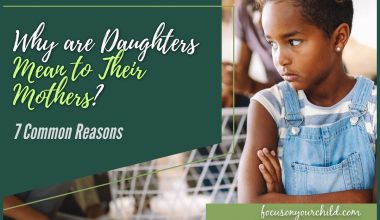Parents, you raised your child, taught them to tie their shoes (or at least gave it a red-hot go), survived puberty (just barely), and possibly still provide snacks during family gatherings.
After all that, is it too much to ask for clear communication and the occasional “thank you” from your now-grown offspring? Apparently, yes.
Before you reach for a second cup of coffee or threaten to auction off their childhood toys, pause for a minute.
What if there are things your adult child wishes you “got,” but you’re missing each other like two ships passing in the night? Here’s what’s really on their minds.
1. They Need Boundaries… and That’s Not a Personal Attack
The warm glow of Sunday roast might make it feel like nothing’s changed, but your adult child’s life has become a juggling act you can barely imagine.
Jobs. Partners. Chores they can’t ignore lest the neighbours complain about the bins.
Adulting is exhausting, and their need for space isn’t about you.
When your grown son says, “Can we skip Christmas lunch this year and just Zoom?” it’s tempting to clutch your pearls. “But we’ve always…” you might say.
Here’s the thing: boundaries are not barriers.
According to Dr. Joshua Coleman, a psychologist specializing in family relationships, adult children aren’t trying to lock you out; they’re carving out room for their new identity, responsibilities, or sanity.
Imagine being on call for your boss 24/7, then someone expects you to show up every Sunday for a mandatory roast lamb. You’d want to rebel, too.
By respecting these limits, you’re not losing your child. You’re actually inviting more authentic connection—one that isn’t based on guilt or obligation.
If the urge to “pop round” strikes, maybe send a text first. It isn’t cold; it’s considerate. And if you’re tempted to dole out unasked-for advice (“Have you tried not being anxious?”), pause.
Sometimes, your adult child just wants to vent, not be fixed. Nothing says “I love you” quite like a well-timed “That sounds rough. Want a cuppa?”
2. They’re Not Living Life Wrong, They’re Just Living It Their Way
There was a time when “success” meant a steady job, mortgage, and at least one child who didn’t eat glue. Now, things are a bit messier.
Your grown child might be freelancing in pyjamas, splitting rent with three housemates, or declining marriage because “the cat is enough, thanks.”
It’s easy to worry you’ve failed somewhere along the line. (Spoiler: You probably haven’t.)
A Pew Research Center study revealed that many young adults define milestones differently than their parents did.
Career changes, travel, starting families later (or not at all)—these aren’t signs of a lost soul; they’re hallmarks of a new era.
Yes, you probably wanted your kid to own a house by now. Maybe you wanted grandchildren, or at least someone else to inherit the family Tupperware.
But today’s economy, housing market, and social scene are… let’s call them “challenging.”
Instead of hinting about “settling down,” try curiosity. Ask why they love their work, their city, or their single life.
You might discover that your child is building a different kind of happiness—one that fits who they really are, not who you thought they’d be.
If you need a pep talk, remind yourself that the world your child faces is not the one you grew up in. (And if you’re desperate to give them advice, ask permission first. They might just say yes, especially if you buy brunch.)
3. All That Parenting Still Matters—Just in a Different Way
Here’s a not-so-secret twist: your influence hasn’t vanished, it’s just gone stealth mode.
The values you instilled—kindness, grit, the ability to cook pasta without setting off the smoke alarm—still echo in your child’s life, even if you no longer get daily updates.
Your adult child might not call every week, but research shows that healthy relationships with parents can boost well-being and self-esteem well into adulthood.
That means your role is still vital, but the job description has morphed. Less “project manager,” more “supportive consultant with snacks.”
Instead of fretting about whether you’re needed, look for ways to cheer from the sidelines. Send a silly meme. Brag about them to your friends (bonus points if you get the details right).
Show up when it counts, like at that art show, pub quiz, or 10k run, even if it means cheering in the rain.
And if you’re feeling left out? Say so—gently. (“I miss hearing from you. Want to catch up this week?”) Vulnerability can invite connection, as long as it doesn’t sound like a guilt trip.
Think “open door,” not “emotional ambush.”
Every time you model healthy relationships—by apologizing, listening, or laughing at your own mistakes—you reassure your adult child they can, too. Parenting doesn’t end, it just shifts gear.
Keeping the Channel Open
Here’s the good news: you don’t have to “get it right” every time. Most adult children crave empathy, not perfection.
They’re not asking you to stop being yourself, just to try seeing life from their side of the dinner table now and then.
When in doubt, ask what they need, listen like you’re learning something new, and resist the urge to fix everything.
The fact that you care enough to wonder what adult children wish their parents understood? That’s already half the battle—no assembly required.
Now put the kettle on and send that text. Your grown-up kid probably has stories to share—and you’re still their favourite audience, whether they admit it or not.




